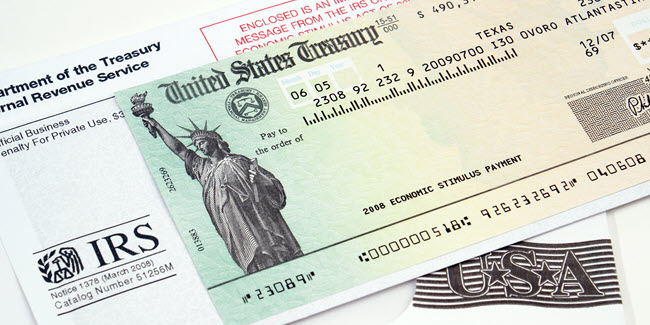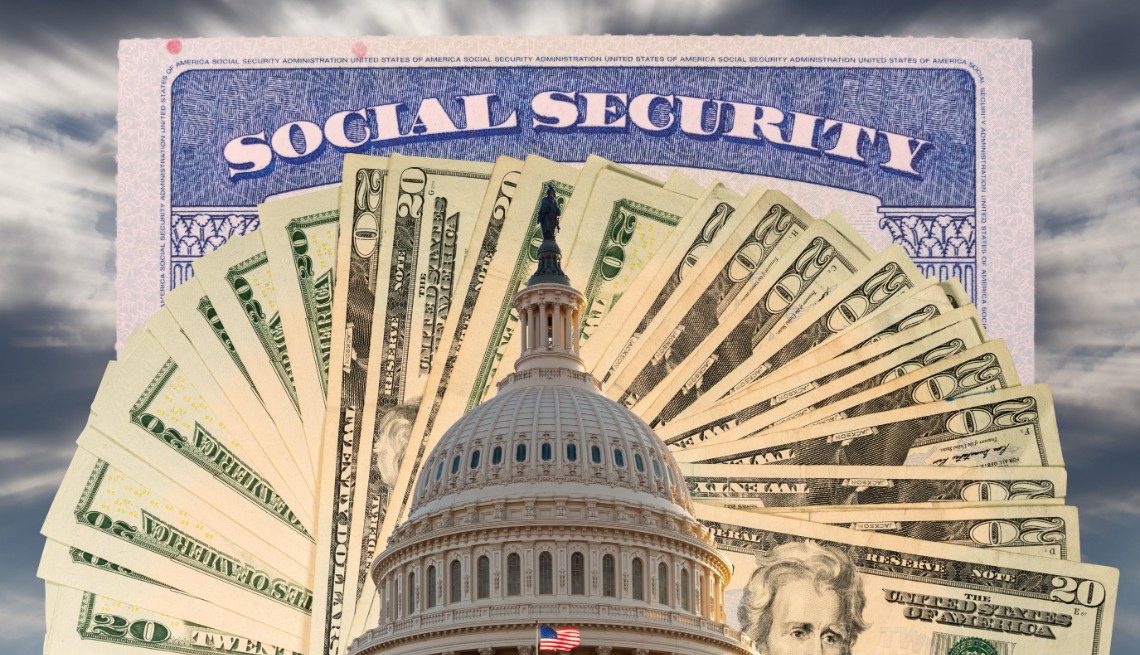In a mind-boggling $900 billion pandemic relief bill signed into law on December 27, Congress approved $600 direct payments to Americans who declared $75,000 or less on their 2019 tax returns (or $150,000 or less if filing jointly). For those making higher incomes, the direct payment amount will be reduced $5 for each $100 earned over the $75,000 threshold.
Additionally, dependents under 17 are eligible for the full direct payment. This is a slight expansion of the CARES Act payments made earlier this year. Previously, minor dependents were only eligible for $500 in direct payments.
The IRS began direct deposits on December 29 and mailing paper checks on December 30. There are already reports some those who are set to receive direct stimulus payment deposits have already received their $600 payment—some as soon as January 2.
Here is what you need to know about the direct payment process:
You will receive your stimulus payment if you did not file a 2019 tax return. If you remember the confusion with Social Security beneficiaries and the first round of stimulus payments, don’t panic! Many of the problems retirees experienced during the first round will NOT be occurring on this second round.
As you probably recall, during the first round of payments last April, many retirees were confused as to how—or if—they’d receive their stimulus checks. It’s not uncommon for retirees not to file tax returns—those relying on Social Security for all of their income, for example, are not required to file tax returns with the IRS. Since it was generally known stimulus payments would be determined using tax return data, this caused a bit of an uproar with retiree non-filers.
THIS time, however, the most important thing for retirees to know is there will be no problems if you fall into the non-filing retiree group.
You will not need to provide any additional information or do anything special to receive your payment. The IRS is working directly with the SSA to make sure checks get to beneficiaries, tax return or not. If you are currently receiving benefits, you will NOT need to do anything to ensure you receive your check—the IRS will get everything it needs from the SSA.
How you receive your Social Security benefits will determine how you receive your stimulus payment. You will either receive a paper check in the mail, a direct deposit, or a debit deposit depending on how your currently receive your Social Security. The IRS will use the current payment arrangement you have on file with the SSA to get your your stimulus payment. If you’re receiving your benefits via a Direct Express debit card, that’s where you’ll receive your stimulus payment, too.
You can track the progress of your stimulus payment online. The IRS has set up an online portal where you can track your payment. If you HAVE filed a 2019 tax return, you can also use the Get My Payment portal to confirm how you’d like to receive your payment. If you HAVE NOT filed a 2019 tax return, you will NOT be able to make changes to how you receive your payment—you will only be able to receive it in the form you currently receive your Social Security benefits.
Adult dependents are NOT eligible for payment. If someone can claim you as a dependent on his tax return, you will not be eligible to receive a direct stimulus payment. This rule is unchanged from CARES Act eligibility rules earlier this year. Please note this is the case whether or not someone actually has claimed you as a dependent on his tax return.
Minor dependents ARE eligible for payment, but you will only receive that additional payment immediately if you claimed a dependent on your 2019 tax return. If you filed a 2019 tax return and claimed a dependent, you will receive the additional $600 payment for your dependent, provided he is under 17 years old. If you did NOT file a tax return, your dependent will still be eligible, but you will need to file a 2020 tax return to claim the $600 as a “recovery rebate” tax credit. Unfortunately this means you’ll have to wait for your additional dependent payment.
Representative payees will receive stimulus payments on behalf of beneficiaries. If you have a representative payee handling your benefits, he will receive your payment on your behalf.
Your stimulus payment will NOT impact your taxes. We’ve already gotten questions from our supporters on this issue, and we’re happy to say these stimulus payments are NOT taxable income. Receiving this payment will not affect the taxes you pay on your Social Security benefits. Additionally, these payments will not affect any other government benefits you might receive that are adjusted based on income.
You may receive a payment for a recently deceased spouse—but if you do, hang onto it. Over one million stimulus payments were sent to deceased Americans on the first round. It is not yet clear whether or not the IRS will ask for that payment back (they did on the first round), so if you lost a spouse during 2020 and receive a second payment for your spouse, do not spend that money. There is a possibility you will have to repay that money to the IRS later.






